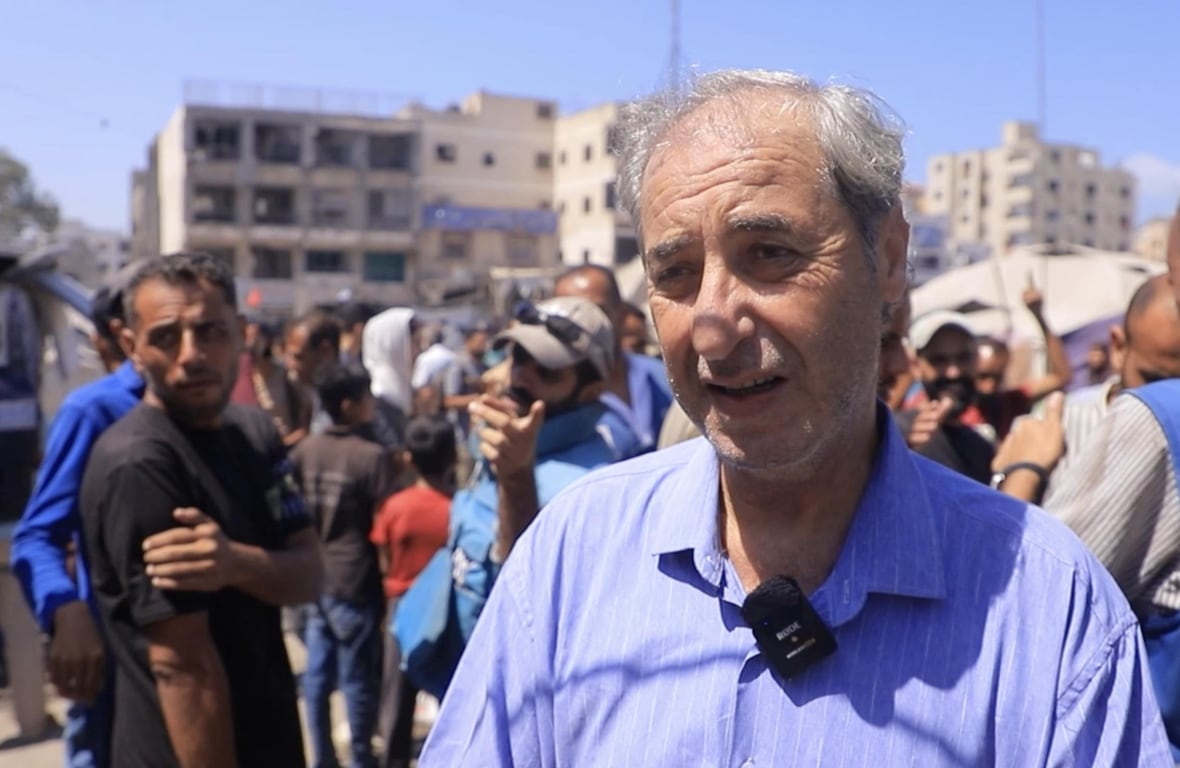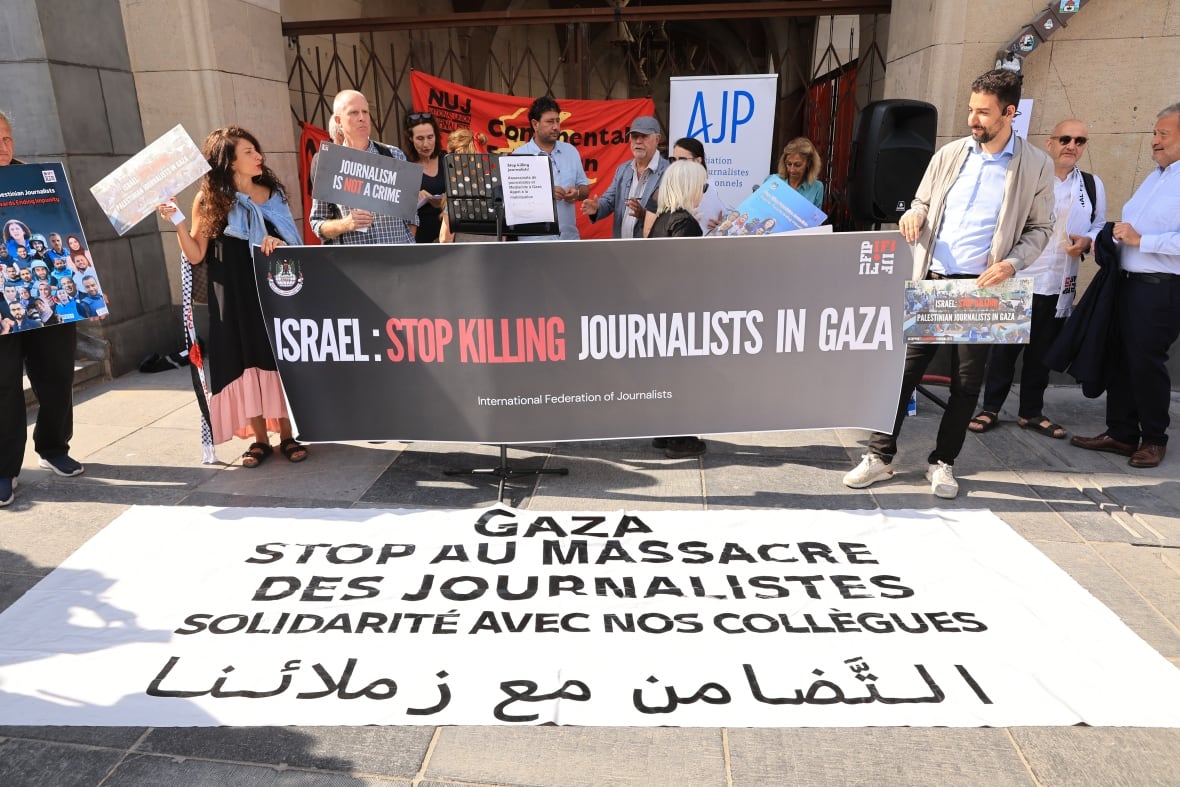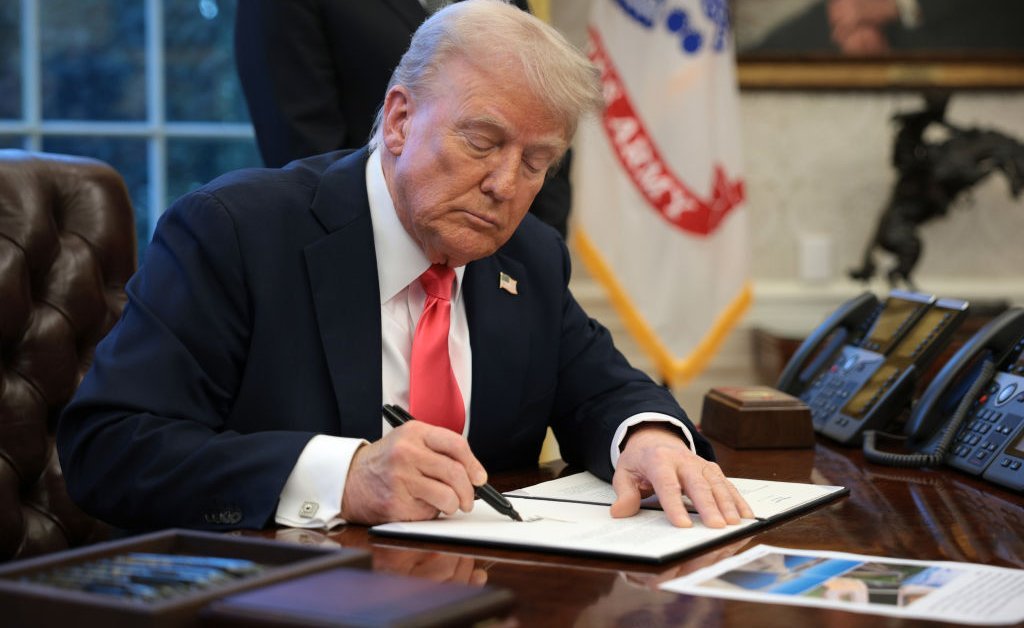Israel is killing journalists and getting away with it, say advocates
August 28, 2025 | by ltcinsuranceshopper

A day and a half after an Israeli “double tap” strike on a Gaza hospital killed five Palestinian journalists along with 15 other medics and civilians, the explanation eventually put forward by the Israel Defence Forces raised more questions than it answered.
The statement said the IDF determined a “camera positioned by Hamas,” located on one of Nasser Hospital’s top floors, needed to be taken out. So a strike was authorized.
In fact, Reuters news agency says the camera that was struck was operated by them, not Hamas, and its feed went blank as the shell hit. The camera operator, Hussam al-Masri, 49, a Reuters contractor who had worked for the agency for 11 years, was one of the first to be killed that day.
Moments later more would follow.
As rescuers, medics and more journalists arrived on the staircase where the first blast struck, IDF gunners fired another shell at the same location.
This second hit was even more destructive and deadly, wiping out the hospital’s rescue teams along with four other journalists: Mariam Abu Dagga,33, who The Associated Press said freelanced for the agency; Mohammed Salama, 24, who Qatar-based Al Jazeera said worked for the broadcaster; Ahmad Abu Aziz, 29, of the Middle East Eye; and Moaz Abu Taha, 27, whose work had also been published by Reuters.
The IDF statement does not mention why it was necessary to aim at the site when civilians were clearly present.
Nor was there any mention of the second shell.
It would have been obvious that, within moments of that first hit, rescuers and more journalists would be arriving on the scene. Why were they deliberately fired at? Who gave that order? And what, if any, punishment will be imposed on those responsible for leaving 20 people shredded and buried in rubble?
Reactions around the world
Canada’s foreign affairs minister, Anita Anand, said she was “horrified” by the attack. British Prime Minister Keir Starmer called it “completely indefensible.”
The statement by Israeli Prime Minister Benjamin Netanyahu, however, framed the incident in a less urgent tone, calling it a “tragic mishap.”
It was no mishap, say journalist groups in Gaza and beyond. They accused Israel of waging a deliberate war on journalists to silence the voices and narratives coming out of Gaza.
“This is a deliberate targeting of journalists,” said Pamela Moriniere of the Brussels-based International Federation of Journalists (IFJ), whose group has labelled the Israeli strategy “mediacide.”

Dozens of members held a protest outside the IFJ offices in the aftermath of the attack.
“There was a double strike — they were targeted. There is no question about that.”
In Khan Younis, Marwan Al-Ghoul, who provides reports and material for U.S. broadcaster CBS News, was part of a similar protest by journalists in Gaza City.
“Israel targets the journalists in Gaza to hide the crimes which are going on in the Gaza Strip,” he said.
“Our message is clear. We need protection.”
Without reporting by Palestinian journalists in Gaza, there would be virtually no coverage of the impact of the war and its horrendous impact on Palestinian civilians.
The IDF has refused to let foreign journalists into Gaza do their own reporting, despite repeated pressure by Israel’s Foreign Press Association to lift the ban.
Immense risks
The journalists in Gaza, of course, are not only reporting on the story of Israel’s almost two-year-long attacks on the Palestinian enclave. They are also trying to survive them.
“As Palestinian journalists who are still working on the ground and in spite of starvation, hunger and famine, we are still doing our work in spite of all of these risks around us,” said freelancer Ghada Al Kurd, who was among those demonstrating in Khan Younis.
“We will continue our work to show the world the crimes that are being done against us as journalists and as Palestinians.”
More than 62,000 people have been killed in Gaza over the past two years, according to Gaza’s Health Ministry, which says around half of those killed have been women and children. However, the repeated targeting and killings of journalists has often stood out from the daily headlines and received more extensive coverage.
The Committee to Protect Journalists says 197 journalists have been killed since October 2023 in the occupied West Bank, Lebanon, Syria and Gaza — the vast majority by Israeli fire.
“The battle over narrative has gone side-by-side with the battle on the ground,” said Dina Matar, a professor at the University of London’s Centre for Global Media and Communication.
“This is not only a strategy to control the narrative but to control the field of knowledge of production and to silence Palestinian voices from the ground, ensuring the dominance of its [the Israeli] narrative,” Matar said in an email interview with CBC News.

Despite the latest and sustained international outcry and the gaps in the official IDF version of what happened, most Israelis do not appear to share that same outrage.
Haaretz, the left-leaning Israeli publication that has been a fierce critic of Netanyahu, noted that even Israeli journalists have tended toward apathy on the issue of the deaths of their Palestinian counterparts.
One prominent Israeli commentator and analyst told CBC News that Israelis remain inclined to believe the IDF’s version of events and accept the explanations provided.
“Israel doesn’t target journalists. Period,” said Hen Mazzig, a former IDF commander who now works as a senior researcher at the Tel Aviv Institute, which focuses on communication and social media related studies in Israel.
“I truly believe, from my experience with the IDF, no IDF soldier would ever target a journalist,” he told CBC News.
“If journalists are killed, it’s because Hamas turned Gaza into a battlefield where civilians and reporters are caught in the crossfire.”
In its statement Tuesday, the IDF underscored its intention to protect civilians, saying, “The chief of the general staff emphasized that the IDF directs its activities solely toward military targets.”
Hamas narratives?
The dominant view in Israel is that the international criticism of how the IDF has conducted the war is fuelled by Hamas narratives, echoed and propagated by Palestinian journalists in Gaza.
Mazzig said he believes the scrutiny Israel and its military has been held up to is unprecedented and that the IDF has repeatedly provided more than enough justification for its actions.
Prior to the five journalists being killed at Nasser Hospital, the killing of prominent Al Jazeera correspondent Anas al-Sharif, 28, also touched off near-universal condemnation by media outlets, foreign governments and journalism groups. He died in a targeted Israeli strike on Aug. 10.
The IDF claimed al-Sharif wasn’t just a Hamas operative; it also said he led what they characterized as a “terror cell” and was drawing a salary from the militant group.
Al Jazeera strenuously denied the allegations and demanded the IDF release proof of any of al-Sharif’s alleged crimes — which it did not.
Within Israel, however, there are few similar public demands for accountability.
“Why would we give more credibility to Hamas’s statements than the IDF, Israel’s army?” Mazzig said.
“We know that there is a lot of misinformation that is being spread and I think we trust … the IDF will do due diligence and investigate each and every incident that is happening.”
The IDF’s initial statement about the incident on Monday used similar words.
“As a professional military committed to international law, we are obligated to investigate our operations thoroughly and professionally,” Brig.-Gen. Effie Defrin said in the statement.
The statement did not mention that, under international humanitarian law, Israel is obligated to avoid civilian deaths in the first place.
The United Nationshas repeatedly criticized Israel for using indiscriminate and disproportional use of force that has caused heavy and, in its assessment, unnecessary civilian deaths.
Numerous other international human rights groups also say that since the Oct. 7, 2023, attacks by Hamas and Israel’s subsequent military response, there are few instances where Israeli officers and commanders have been held responsible for killing civilians in Gaza.
Action on Armed Violence, a British-based NGO, says Israel has claimed to have undertaken 52 military probes into alleged war crimes in Gaza and the occupied West Bank. Of those, it says 88 per cent have either ended or have yet to produce any finding of wrongdoing.
The group says the cases collectively included the deaths of 1,303 people and resulted in only one Israeli being sent to prison for their actions.
“This pattern of impunity further undermines the repeated claims by the IDF that its operations are governed by the highest standards of international humanitarian law,” said the group’s report, which was released in early August.
The Israeli human rights group Yesh Din also found a similar pattern when it examined IDF and settler violence against Palestinians in the occupied West Bank, as it claimed “Israeli authorities are unable or unwilling to enforce the law on Israelis who harm Palestinians and their property.”
Though Canada’s government has sanctioned several senior Israeli cabinet ministers for encouraging and propagating violence against Palestinians in the occupied West Bank, advocates want Prime Minister Mark Carney and his government to go further and impose heavier sanctions for the IDF’s actions in Gaza.
Matar, the London-based journalism professor, says despite the IDF’s promises of an open investigation of the Nasser Hospital killings, she does not expect those responsible will face repercussions.
“It is very disappointing that there is no valid or credible response to those attacks, apart from words of condemnation,” she said.
“This is part of Israel’s continuous narrative — that everything and everyone is Hamas — in order to continue to receive support from its Western allies.”
RELATED POSTS
View all


